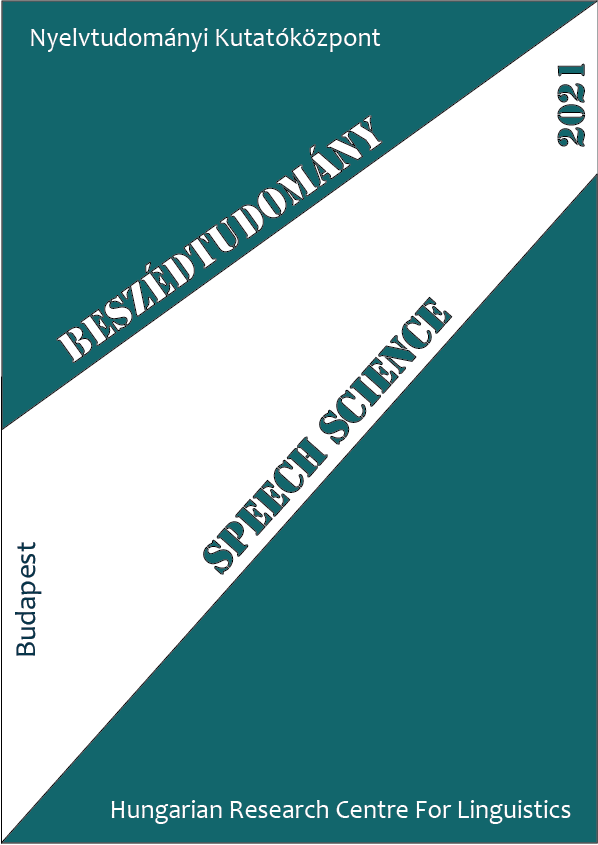The non-lexical öö sound as a discourse marker in Hungarian conversations
Abstract
This paper examines the possible role of the schwa-like öö sound in turn-taking in Hungarian conversations within a novel, conversation analytic and pragmatic framework. It attempts to distinguish between the hesitation and discourse organising function of the phenomenon, the latter function is associated with the structural positions of öö in the conversation. With an inductive qualitative method all the occurrences of öö are considered in the corpus, and five characteristical position are identified. When speakers use öö in these positions, they can influence the operation of the turn-taking system, or they can express an attitude towards a rule of the turn-taking system. These positions can be both before and at the transition-relevance place. The analyses show that the use of öö can have a role in the course of each turn-taking rule (cf. Sacks et al, 1974). The discourse markers that are independent of the syntactic structure of the utterance can be non-lexical as well, and can concern the sequential structure of the conversation (Fischer, 2006, p. 9). This group contains the discourse markers that take part in the control of the turn-taking system. On the basis of this argumentation, the öö-s that influence the operation of the turn-taking system, or express the speaker's attitude towards a rule of the turn-taking system, can be regarded as discourse markers.




